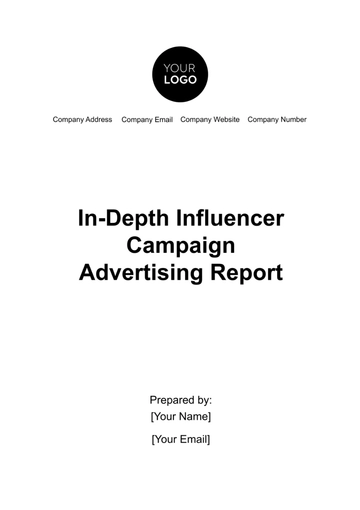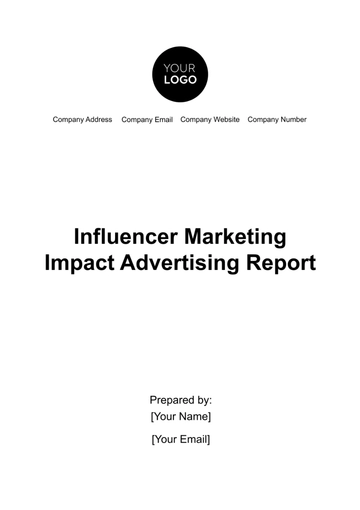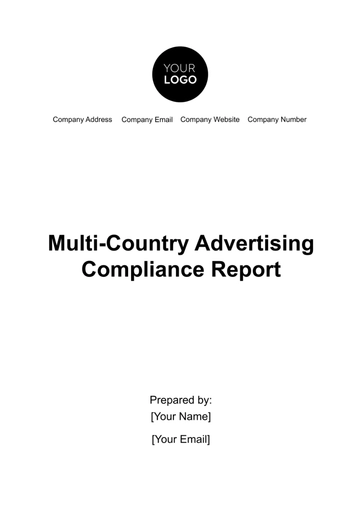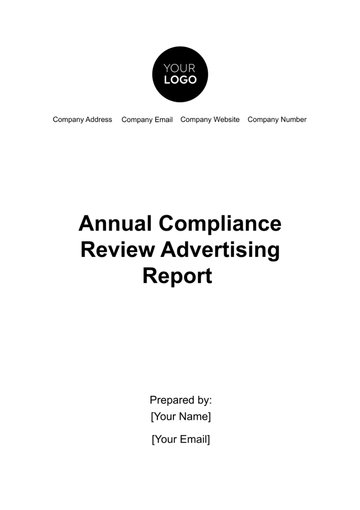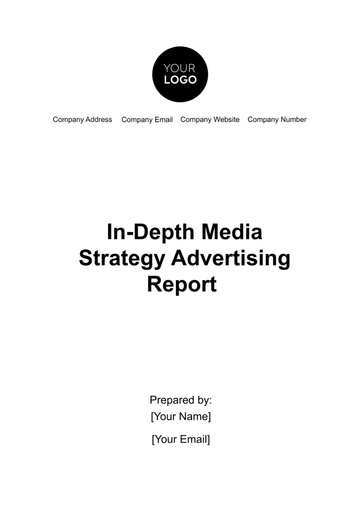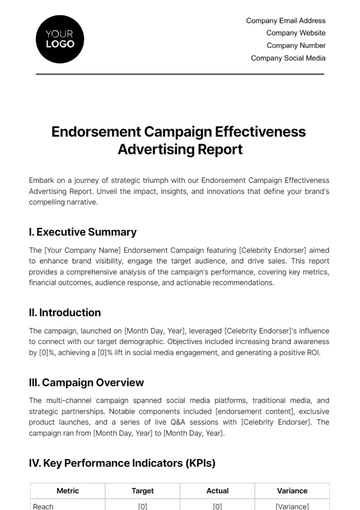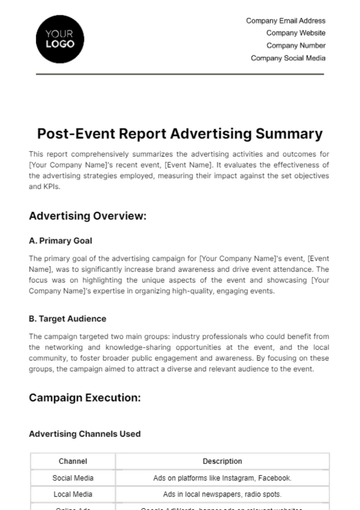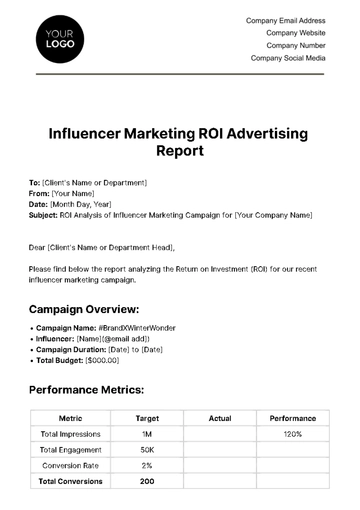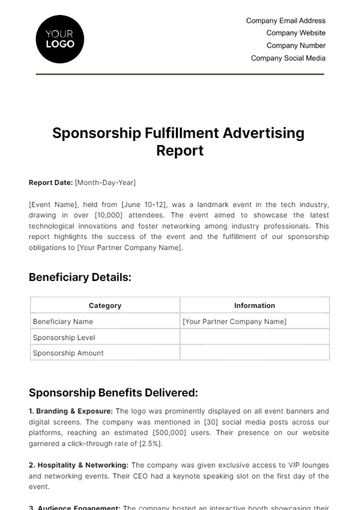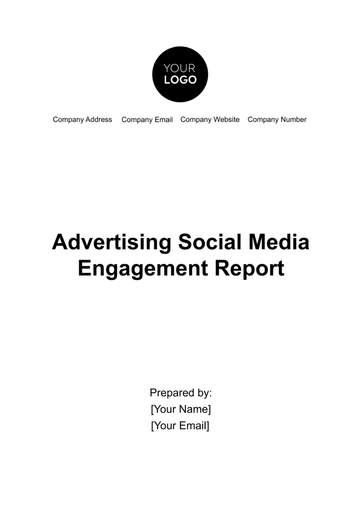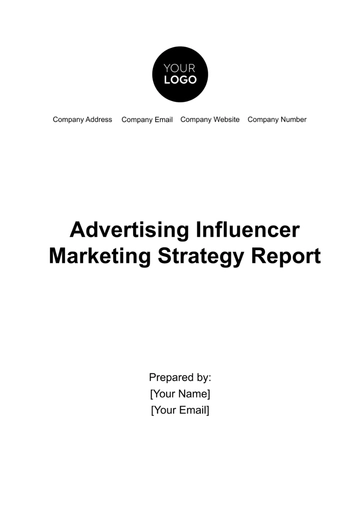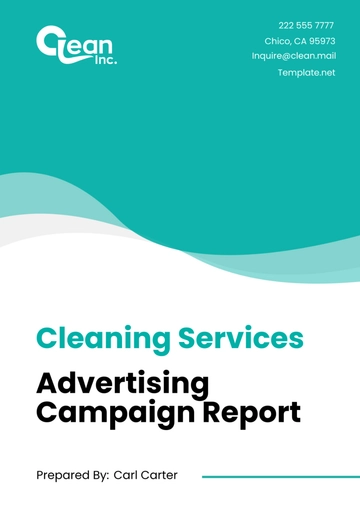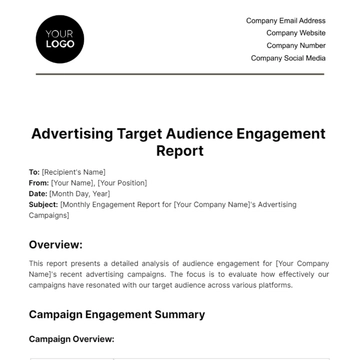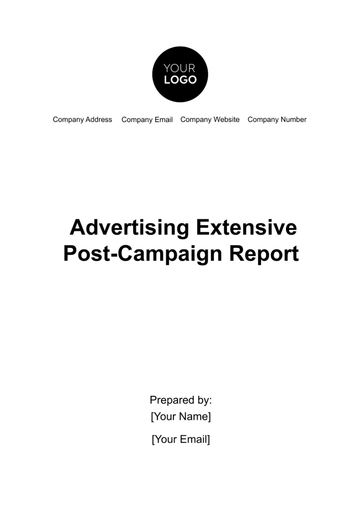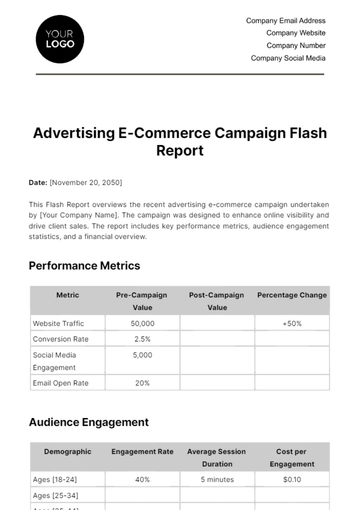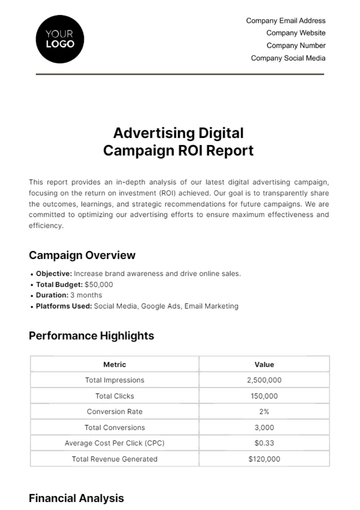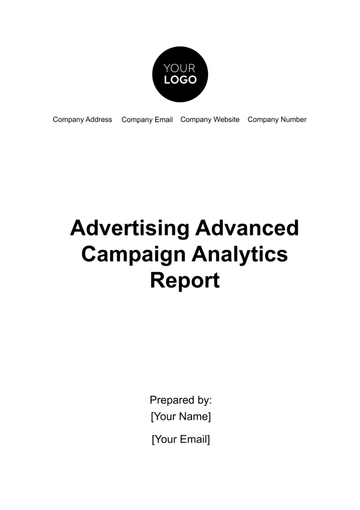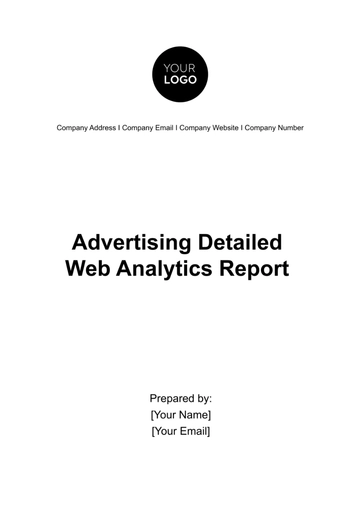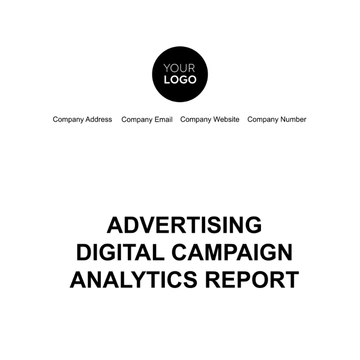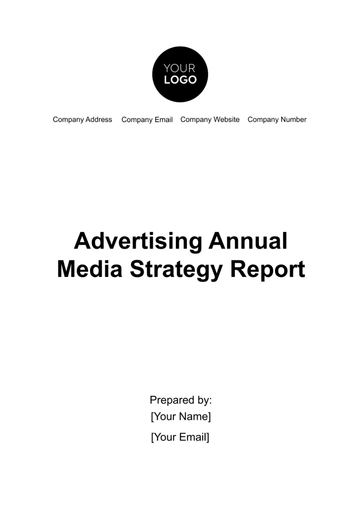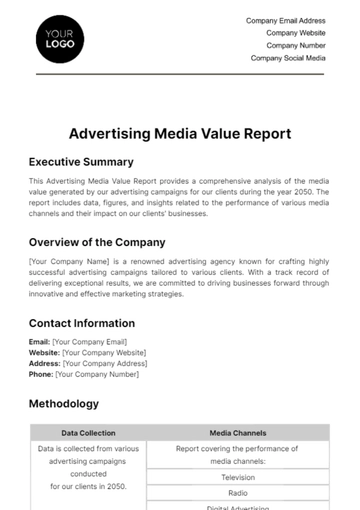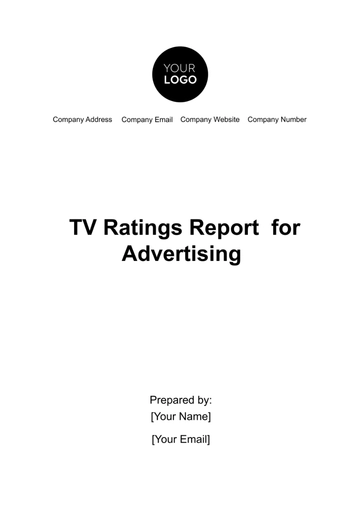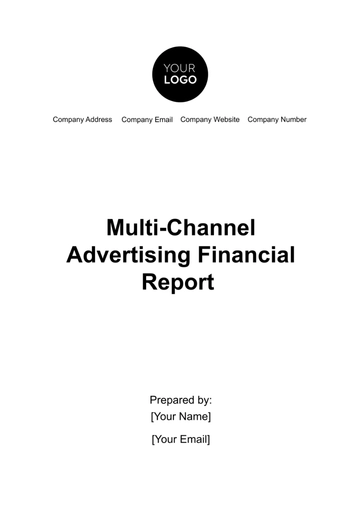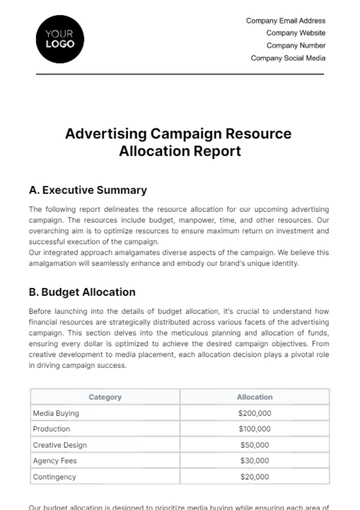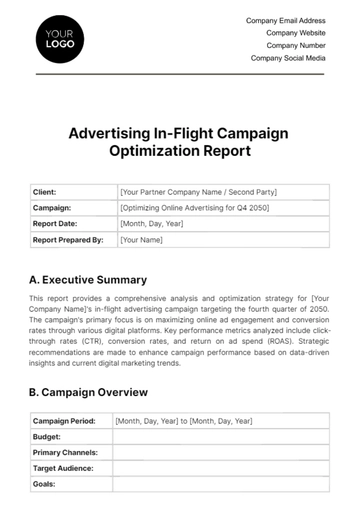Free Product Advertising Report

Prepared by: [Your Name]
Date: December 24, 2050
I. Introduction
This report provides an in-depth analysis of the current advertising strategies employed for our product line. It explores various advertising channels, evaluates their effectiveness, and provides insights into potential areas of improvement.
1.1 Purpose of the Report
The primary aim of this report is to outline the current state of our advertising efforts and to propose strategies that can enhance our product's visibility and engagement with our target audience. We will analyze data from various advertising platforms and provide recommendations based on the findings.
1.2 Scope
This report focuses on the advertising activities over the past fiscal year. It examines multiple channels, including social media, search engines, and print media. Furthermore, it provides a projection of future trends in advertising strategies for competitive advantage.
II. Analysis of Advertising Channels
2.1 Social Media
Social media remains a powerful tool for reaching a wide audience. Platforms such as Facebook, Instagram, and Twitter provide opportunities for targeted advertising and have proven effective in engaging with younger demographics.
Platform | Engagement Rate | Conversion Rate |
|---|---|---|
12.5% | 4.2% | |
15.6% | 3.8% | |
9.8% | 2.5% |
2.2 Search Engine Marketing
Search engine marketing (SEM) is crucial for capturing potential customers who are actively searching for related products. Google Ads and Bing Ads are the leading platforms in this space, offering targeted ad placements and robust analytical tools.
2.3 Print Media
Although print media is declining, it still holds value in specific markets. Advertisements in magazines and newspapers are essential for reaching audiences with limited digital access. It can also enhance brand credibility.
III. Evaluation of Advertising Effectiveness
3.1 Conversion Metrics
Analyzing conversion metrics is pivotal in understanding the success of our advertising campaigns. Our current conversion rate across all platforms reveals areas that have been underperforming and thus require optimization.
Overall conversion rate: 3.6%
Highest conversion platform: Instagram
Lowest conversion platform: Print media
3.2 Cost-Benefit Analysis
The cost associated with different advertising channels varies significantly. A detailed cost-benefit analysis helps in allocating resources more efficiently.
Channel | Cost | Return on Investment (ROI) |
|---|---|---|
$20,000 | 2.5x | |
Google Ads | $35,000 | 3x |
Print Media | $15,000 | 1.2x |
3.3 Customer Feedback
Gathering feedback from customers who have interacted with our ads is essential for understanding the strengths and weaknesses of our campaigns. Surveys and focus groups have been instrumental in this process.
IV. Recommendations for Future Advertising Strategies
4.1 Increase Digital Presence
In a rapidly digitizing world, strengthening our digital presence is non-negotiable. Increasing investment in SEM and optimizing social media campaigns can significantly boost our reach and engagement.
4.2 Enhance Content Quality
Improving the quality of our ad content to ensure it is engaging, informative, and visually appealing is critical. This approach increases the likelihood of attracting and retaining potential customers.
4.3 Explore New Channels
Exploration of new advertising channels or platforms that reach emerging or niche markets is recommended. Diversifying our advertising portfolio will reduce the risks associated with over-reliance on traditional platforms.
V. Conclusion
The product advertising report highlights the essential aspects of our current advertising efficacy and illustrates areas for growth. By enhancing digital strategies and content quality, while exploring novel advertising avenues, we can expand our market reach and improve sales performance.
- 100% Customizable, free editor
- Access 1 Million+ Templates, photo’s & graphics
- Download or share as a template
- Click and replace photos, graphics, text, backgrounds
- Resize, crop, AI write & more
- Access advanced editor
Elevate your marketing strategy with the Product Advertising Report Template from Template.net. This fully customizable template allows you to effortlessly track and analyze your advertising performance. Easily editable in our AI Editor Tool, you can tailor every detail to suit your needs, ensuring your reports are both professional and impactful. Streamline your reporting today!
You may also like
- Sales Report
- Daily Report
- Project Report
- Business Report
- Weekly Report
- Incident Report
- Annual Report
- Report Layout
- Report Design
- Progress Report
- Marketing Report
- Company Report
- Monthly Report
- Audit Report
- Status Report
- School Report
- Reports Hr
- Management Report
- Project Status Report
- Handover Report
- Health And Safety Report
- Restaurant Report
- Construction Report
- Research Report
- Evaluation Report
- Investigation Report
- Employee Report
- Advertising Report
- Weekly Status Report
- Project Management Report
- Finance Report
- Service Report
- Technical Report
- Meeting Report
- Quarterly Report
- Inspection Report
- Medical Report
- Test Report
- Summary Report
- Inventory Report
- Valuation Report
- Operations Report
- Payroll Report
- Training Report
- Job Report
- Case Report
- Performance Report
- Board Report
- Internal Audit Report
- Student Report
- Monthly Management Report
- Small Business Report
- Accident Report
- Call Center Report
- Activity Report
- IT and Software Report
- Internship Report
- Visit Report
- Product Report
- Book Report
- Property Report
- Recruitment Report
- University Report
- Event Report
- SEO Report
- Conference Report
- Narrative Report
- Nursing Home Report
- Preschool Report
- Call Report
- Customer Report
- Employee Incident Report
- Accomplishment Report
- Social Media Report
- Work From Home Report
- Security Report
- Damage Report
- Quality Report
- Internal Report
- Nurse Report
- Real Estate Report
- Hotel Report
- Equipment Report
- Credit Report
- Field Report
- Non Profit Report
- Maintenance Report
- News Report
- Survey Report
- Executive Report
- Law Firm Report
- Advertising Agency Report
- Interior Design Report
- Travel Agency Report
- Stock Report
- Salon Report
- Bug Report
- Workplace Report
- Action Report
- Investor Report
- Cleaning Services Report
- Consulting Report
- Freelancer Report
- Site Visit Report
- Trip Report
- Classroom Observation Report
- Vehicle Report
- Final Report
- Software Report




